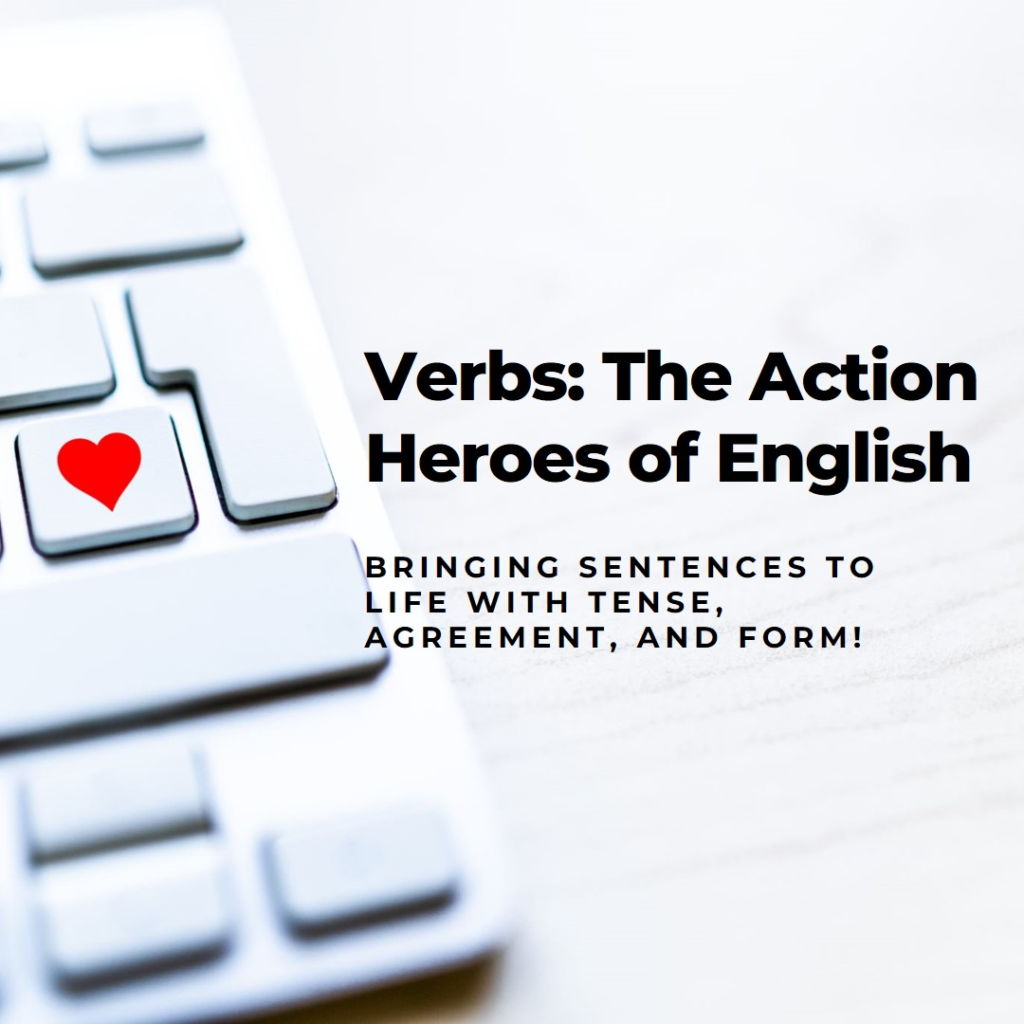GRAMMAR TOPIC 1: Verbs in English
GRAMMAR TOPIC 1: Verbs in English
Download exercises here: https://drive.google.com/file/d/1xmM0K7iWCIs-6TLIR4NPF8G1fO6JzYHW/view?usp=drive_link
Download handout for verb form here: https://drive.google.com/file/d/1D0lQxQq-HRbPnS_juo1D1GNiwTrcxaLD/view?usp=drive_link


Verbs are the powerhouses of any sentence in English. They breathe life into our language, conveying actions, states of being, and even emotions. Mastering verb usage is fundamental for clear and precise communication, taking your English from functional to flourishing. This post delves into several key verb concepts to propel your grammar skills to an intermediate level and beyond.


Tense Time Travel: Navigating the Flow of Time
English verbs act as time machines, allowing us to express actions across various points on the timeline. Here’s a glimpse into the most common tenses:
- Present Tense: This workhorse tense depicts ongoing actions or habits that occur regularly. (e.g., Sarah whips up a delicious breakfast every morning).
- Past Tense: This tense transports us back in time, conveying completed actions. (e.g., The children built a magnificent sandcastle yesterday, much to their parents’ delight).
- Future Tense: Ever the planner, the future tense serves as our roadmap for upcoming events, indicating actions yet to occur. (e.g., We’ll be celebrating Michael’s birthday with a surprise party next weekend).
Subject-Verb Agreement: The Dance of Harmony
Imagine a perfectly choreographed dance where the subject and verb move in perfect unison. That’s the essence of subject-verb agreement! The verb must align with the subject in number (singular or plural) to create a grammatically sound sentence. Here’s a breakdown to avoid any missteps:
- Singular Subjects demand singular verbs (e.g., The dog wags its tail enthusiastically).
- Plural Subjects necessitate plural verbs (e.g., The leaves undergo a beautiful color change in autumn).
Beyond the Basics: A Look at Verb Forms
Verbs come in a variety of forms, each fulfilling a specific role within a sentence:
- Base Form (Infinitive): This is the dictionary form of the verb, often introduced by “to” (e.g., She aspires to travel the world). It’s also used with modal verbs like “can” and “may”.
- Present Participle (ing form): This form signifies ongoing or continuous actions (e.g., They are practicing their lines for the school play).
- Past Participle: This form conveys completed actions or the state of being after an action (e.g., The cookies have been devoured by the children!). It’s used in perfect tenses and passive voice.
This is just the first chapter in our verb exploration journey!
Stay tuned for subsequent posts where we delve deeper into these concepts with illustrative examples and exercises to solidify your comprehension of verb usage. Don’t hesitate to join the conversation! Leave a comment below with any questions you may have regarding verbs or other English grammar topics. Let’s embark on this learning adventure together!
